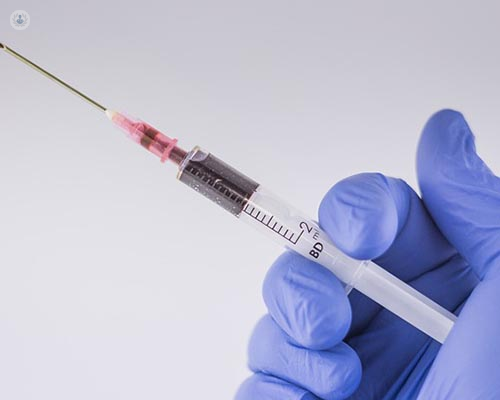Trypsinogen
What is being analysed?
Trypsinogen is a pancreatic enzyme precursor that is converted into the active enzyme trypsin in the small intestine. Analysing levels of trypsinogen in the blood can provide valuable insights into pancreatic health and function.

What does the result mean?
The result of trypsinogen analysis indicates the levels of this enzyme precursor in the bloodstream. Elevated or decreased levels may signify underlying pancreatic disorders such as pancreatitis, pancreatic cancer, or cystic fibrosis.
Why do the analysis?
Analysing trypsinogen levels is crucial for diagnosing pancreatic diseases early, monitoring disease progression, evaluating treatment effectiveness, and assessing overall pancreatic function.
When to do the analysis?
Trypsinogen analysis is typically ordered by healthcare providers when there is suspicion of pancreatic dysfunction or disease. Common symptoms that may prompt trypsinogen testing include abdominal pain, unexplained weight loss, jaundice, and digestive issues.
What sample is required?
A blood sample is required for trypsinogen analysis. This sample is usually drawn from a vein in the arm using a needle and collected in a special tube by a trained specialist
Is any type of prior preparation necessary?
Generally, no special preparation is required before a trypsinogen blood test. However, it's essential to follow any specific instructions provided by your healthcare provider, such as fasting requirements or medication adjustments.
How is it used?
The trypsinogen test is used alongside other diagnostic tests and clinical assessments to evaluate pancreatic health. Results are interpreted by healthcare professionals in conjunction with patient symptoms, medical history, and other laboratory findings.
What are the normal values?
Normal trypsinogen levels in the blood typically range from 0 to 60 nanograms per millilitre (ng/mL), although reference ranges may vary slightly between laboratories.
What does it mean to have altered values?
Elevated levels: Higher than normal trypsinogen levels may indicate acute pancreatitis, chronic pancreatitis, pancreatic cancer, or other pancreatic disorders. Further evaluation is necessary to determine the underlying cause.
Decreased levels: Lower than normal trypsinogen levels can be indicative of pancreatic insufficiency, cystic fibrosis, or obstruction of the pancreatic ducts. Additional testing and clinical correlation are required for accurate diagnosis and management.
Normal Trypsinogen Values
|
Age Group |
Normal Range (ng/mL) |
|
Adults |
0-60 |
|
Children |
0-40 |
|
Elderly (>65) |
0-70 |
These values serve as general guidelines, and interpretation should consider individual patient factors and specific laboratory reference ranges.